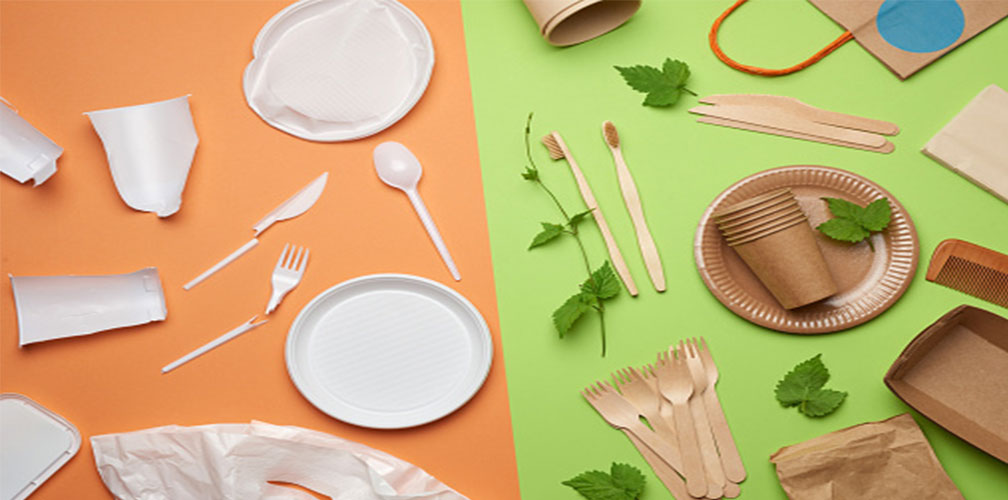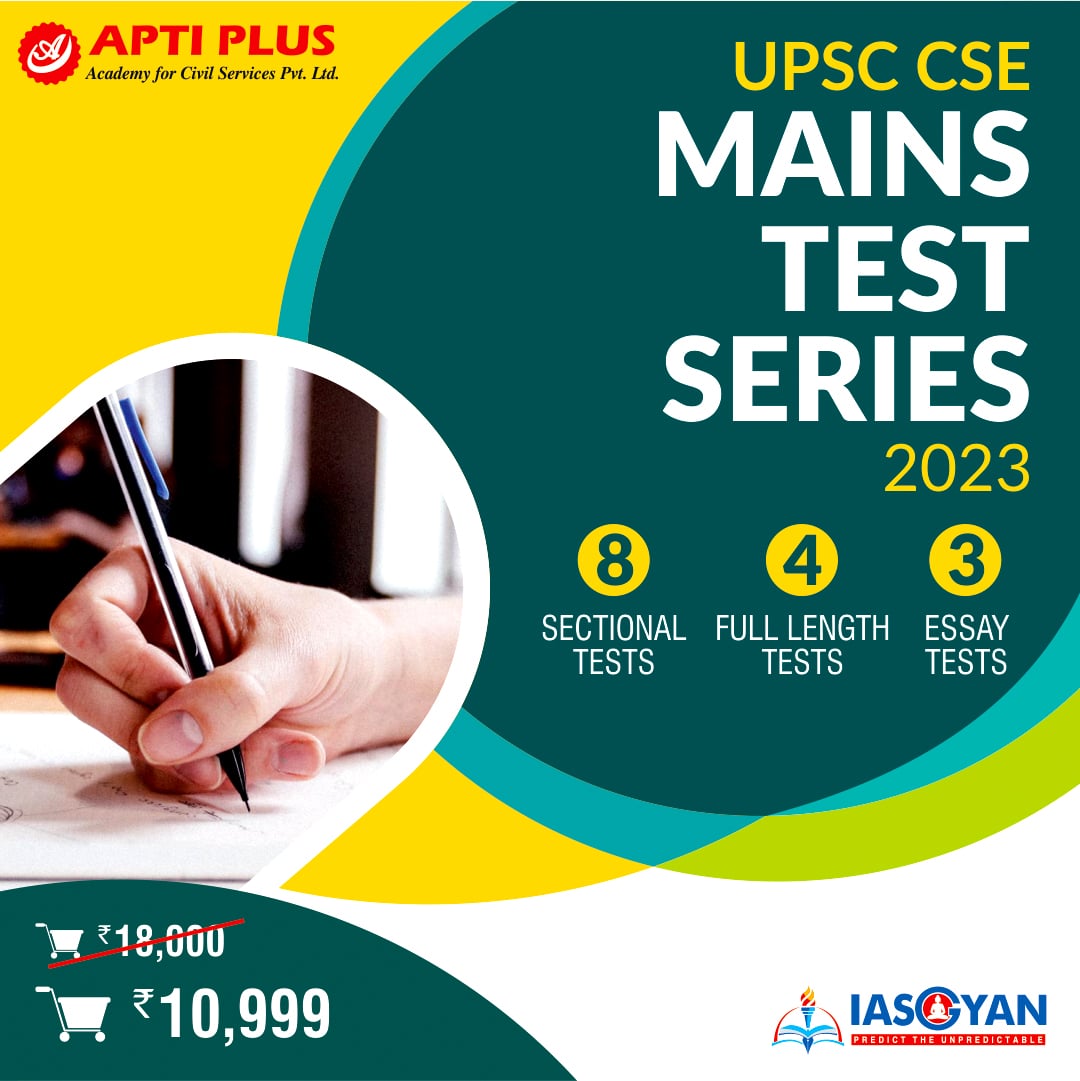Description

Copyright infringement not intended
Context: The Bureau of Indian Standards (BIS) has announced a new standard for food serving utensils made from agricultural by-products, such as leaves, stems, and husks. The standard, IS 18267: 2023, aims to reduce plastic waste and promote sustainable development in the country.
Details
- The standard provides clear and consistent guidelines for both manufacturers and consumers on the quality and safety requirements of these utensils.
- The standard covers various aspects of biodegradable utensils, such as raw materials, manufacturing methods, performance, and hygiene.
- It specifies the types of agri by-products that can be used for making plates, cups, bowls, etc., such as leaves and sheaths of bananas, palm, areca nuts, etc.
- It suggests techniques for making these utensils, such as hot pressing, cold pressing, moulding, and stitching.
- It sets the criteria for the smoothness, sharpness, and cleanliness of these utensils.
Biodegradable Utensils
About
- Biodegradable utensils are a type of disposable cutlery that can break down into natural components in a short time, without leaving behind harmful residues or microplastics.
- They are considered a more eco-friendly alternative to conventional plastic utensils, which are made from fossil fuels and persist in the environment for hundreds of years.
Features
- Biodegradable utensils are made from natural materials that can break down into harmless substances in a composting environment.
- Some of the common materials used for biodegradable utensils are bamboo, sugarcane, corn, plant oils, animal fats, straw, woodchips, orange peels and sawdust.
- They are compostable, meaning they can be disposed of in a compost bin or a commercial compost facility and turned into soil within a certain period. For example, Bambu Home's bamboo cutlery is certified to be compostable in 4-6 months in a home composting system.
- They are biodegradable, meaning they can degrade in the natural environment without leaving harmful residues or microplastics. For example, Berkeley scientists have developed a new process that makes biodegradable plastics truly compostable with just heat and water in a few weeks.
- They are heat-resistant, meaning they can withstand high temperatures ranging from 180 to 190 degrees Fahrenheit and can be used in microwaves and dishwashers. For example, Zerowasteman's biodegradable products have high heat resistance and are microwave safe.
- They are gluten-free and have no added PFAs (per and poly-fluoroalkyl substances), which are chemicals that can leach into food and water and cause health problems. For example, Fortune Business Insights' biodegradable cutlery market report states that biodegradable cutlery is gluten-free and has no added PFAs.
Significances
- Biodegradable utensils have several benefits for the environment and human health.
- They reduce the consumption of fossil fuels and greenhouse gas emissions associated with plastic production.
- They reduce the amount of plastic waste that ends up in landfills, oceans and ecosystems, where it poses a threat to wildlife and biodiversity.
- They reduce the risk of human exposure to toxic chemicals and additives that can leach from plastic utensils into food and drinks.
- They promote a circular economy, where resources are reused and recycled instead of discarded.
- They support sustainable agriculture and forestry practices, where crops and trees are grown for bioplastic production.
Challenges
- They are more expensive than plastic utensils, due to higher production costs and lower economies of scale.
- They have a shorter shelf life than plastic utensils, due to their susceptibility to moisture and microbial degradation.
- They require specific conditions for proper decomposition, such as high temperature, humidity and oxygen levels. These conditions are often not met in home compost bins or landfills, where most biodegradable utensils end up.
- They can contaminate other recyclable plastics if they are mixed in recycling bins or facilities.
- They can create confusion among consumers and waste managers about how to dispose of them correctly.
Way Forward
- Develop new technologies and innovations that can lower production costs and improve the performance of biodegradable utensils.
- Increasing consumer awareness and education about the benefits and proper use of biodegradable utensils.
- Establishing clear standards and labels for biodegradable utensils that can distinguish them from other types of plastics.
- Expanding the availability and accessibility of composting facilities that can process biodegradable utensils efficiently and safely.
- Encouraging government policies and incentives that can support the development and adoption of biodegradable utensils.
Conclusion
- Biodegradable utensils are a promising option for reducing the environmental impact of disposable cutlery. However, they also face some challenges that need to be addressed. By combining technological innovation, consumer education, standardization, composting infrastructure and policy support, biodegradable utensils can become a viable solution for a more sustainable future.
Must Read Articles:
Bureau of Indian Standards (BIS): https://www.iasgyan.in/daily-current-affairs/bureau-of-indian-standards
|
PRACTICE QUESTION
Q. Which of these statements is/are correct about biodegradable utensils?
A) They can be moulded into any shape and size
B) They can withstand high temperatures and liquids
C) They can be eaten or digested by humans or animals
D) They can be composted at home or industrial facilities
How many of the above statements are correct?
A) Only 1
B) Only 2
C) Only 3
D) All
Answer: C
Explanation: Biodegradable utensils are not edible or digestible by humans or animals. Some biodegradable utensils may be made from edible materials such as pasta or rice, but they are not meant to be consumed as food. Biodegradable utensils should be disposed of properly in compost bins or facilities.
|

https://pib.gov.in/PressReleasePage.aspx?PRID=1934624













